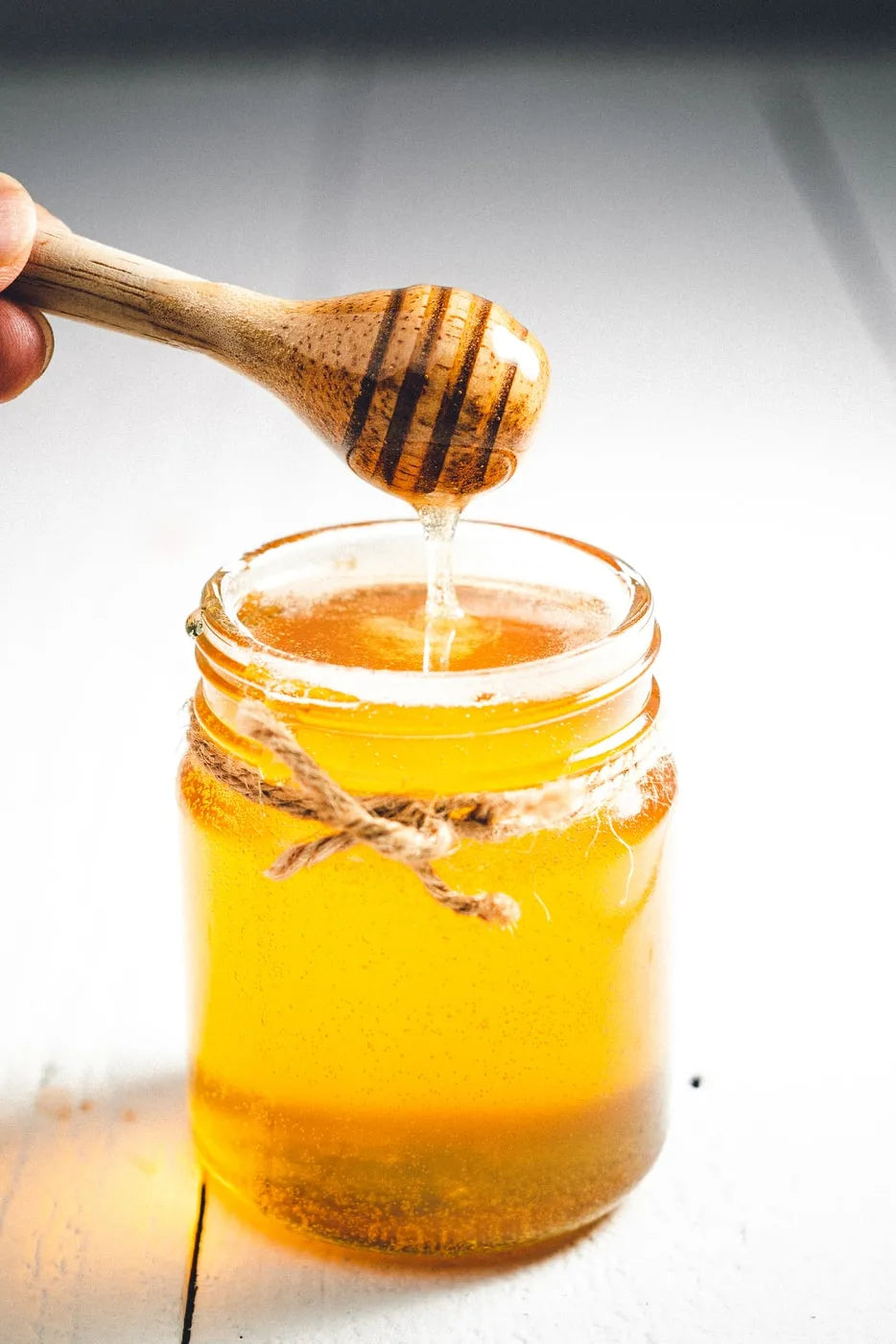Why You Need a Daily Dose of Honey
Honey Facts
Raw & unfiltered honey is a superfood in every sense of the word: super unique, super useful and super good for you. In our decades of bottling rare and unique honeys from around the country, we’ve come across more than our fair share of ways to eat it, drink it and use it in recipes, cocktails, breakfast, lunch, dinner – you name it.
But our favorite way to eat honey is still just straight-up savoring a spoonful of it a few times a day. By eating a spoonful at a time, with or without other foods, you give your body a chance to digest it properly and make full use of its many wellness-uplifting benefits. To explain why, we’ll turn to some evidence from The Honey Doctor, Dr. Ron Fessenden.
The Basics: Honey as a Health Food
According to Dr Fessenden’s book “The New Honey Revolution,” over 180 substances have been identified in honey, each with various health effects, including:
– 5 enzymes
– 6 vitamins
– 8 lipids
– 12 minerals
– 17 elements
– 18 acids
– 18 amino acids (proteins)
– 18 bioflavonoids
– 26 aroma compounds
These 180 compounds are only present in tiny amounts, but have a significant effect on how your body processes the compounds that make up the majority of the honey: fructose and glucose, AKA fruit sugar and blood sugar.
Because of these compounds (and the relatively small proportion of fructose) in honey, it doesn’t cause blood sugar and insulin spikes the way other sugars do. In fact, when taken in small amounts over a long period of time, honey can help your body regulate blood sugar and insulin levels.
The First Key Time to Have Honey: Early in the Morning
Early in the morning after you wake up, your brain is depleted. It’s spent the night running at full power while you sleep. To prevent grogginess, stress and hunger pangs, it’s important to eat something early in the day. The old adage about breakfast being the most important meal of the day isn’t necessarily true, but a healthy start absolutely has benefits for your body.
The Second Key Time to Have Honey: Before Exercise
Honey is both rapidly processed by the body and contains the exact kind of fuel your muscles need as fuel during exercise. Take a spoonful before exercise to make sure you don’t crash, and if you’re working out for more than around an hour, have more honey during exercise. This effectively lets your brain know, “We’re okay to keep going. We’re not dying here” and prevents you feeling tired before your muscles get tired.
The Third Key Time to Have Honey: During Meals
Eating small amounts of honey throughout the day, for a long period of time, helps to regulate blood sugar. The current diet trend has many Americans trying to cut carbs in all forms from their diets. (That’s using “current” loosely, as carb-cutting diets like Atkins and South Beach have been in vogue for half a century.) But, while honey is primarily sugar, eating it in small doses (1–2 tbsp at most) does not cause a blood sugar crash the way that other simple sugars do – especially high fructose corn syrup.
You can save your body a great deal of metabolic stress by swapping our table sugar (sucrose) and other simple sugars when possible. Check out our “Sweet Swap” blog on the subject for more details.
The Fourth Key Time to Have Honey: Before Bed
Eating honey before bed can help you sleep soundly through the night. “BUT WAIT,” you say, “Are you really trying to tell me that honey is supposed to be a preworkout pick-me-up AND a sleep aid?”
Yes! Honey really is that effective, all because of its unique combination of fructose, glucose and other . It’s a food that is practically designed to benefit the body – except it wasn’t designed. It was made entirely by bees, truly a marvel of nature.
The reason honey helps you sleep is that sleep is actually a high-energy state for the brain. During sleep, the brain requires as much, or even more, energy than during the day. By energizing your brain before bed, you allow it to get to work on recovery, memory consolidation, immune system restoration and learning. If your body is short on energy to power your brain, it may begin producing cortisol and adrenaline: stress hormones meant to wake you up and get you to eat more. These are the last things you want pumping through your veins when you’re trying to get some shut-eye.
If you want see a full explanation of honey’s health benefits, packed with citations from academic studies, check out Dr. Fessenden’s book, “The New Honey Revolution.”
